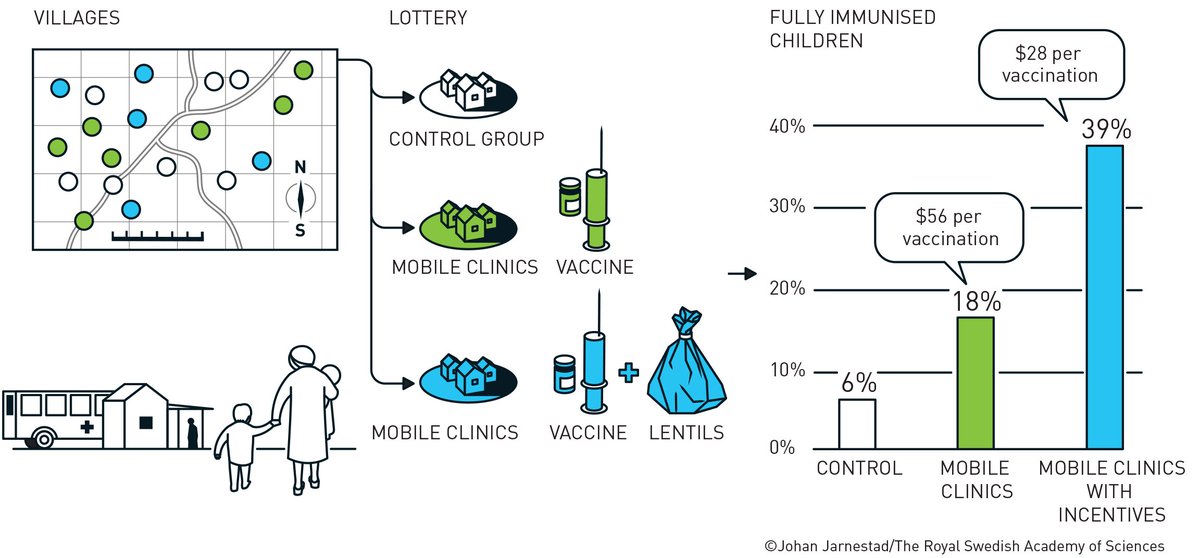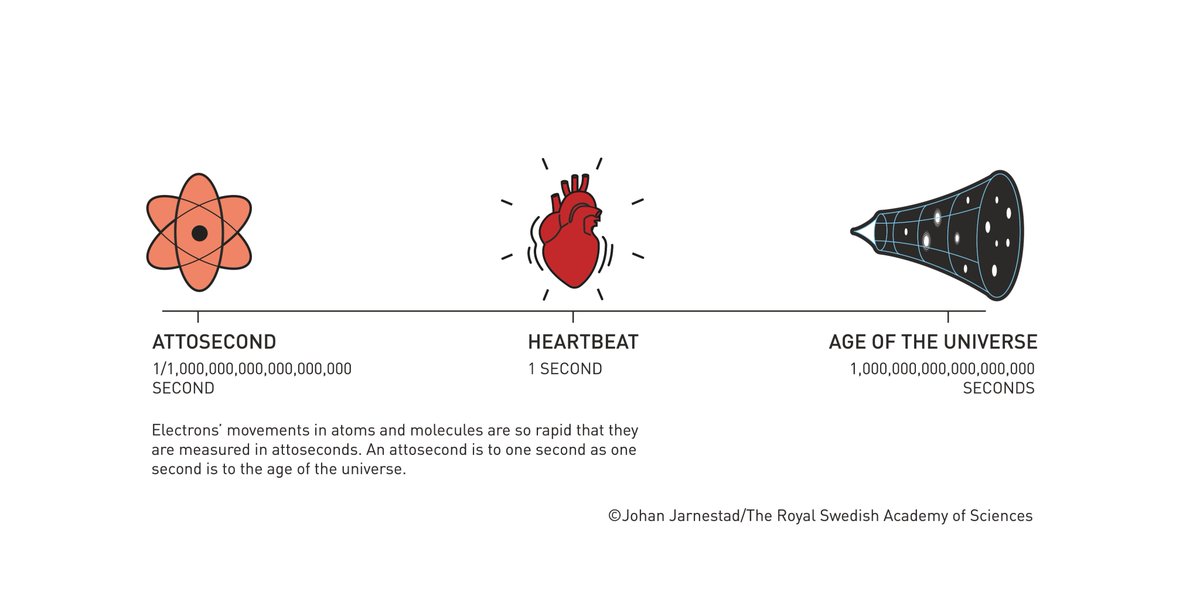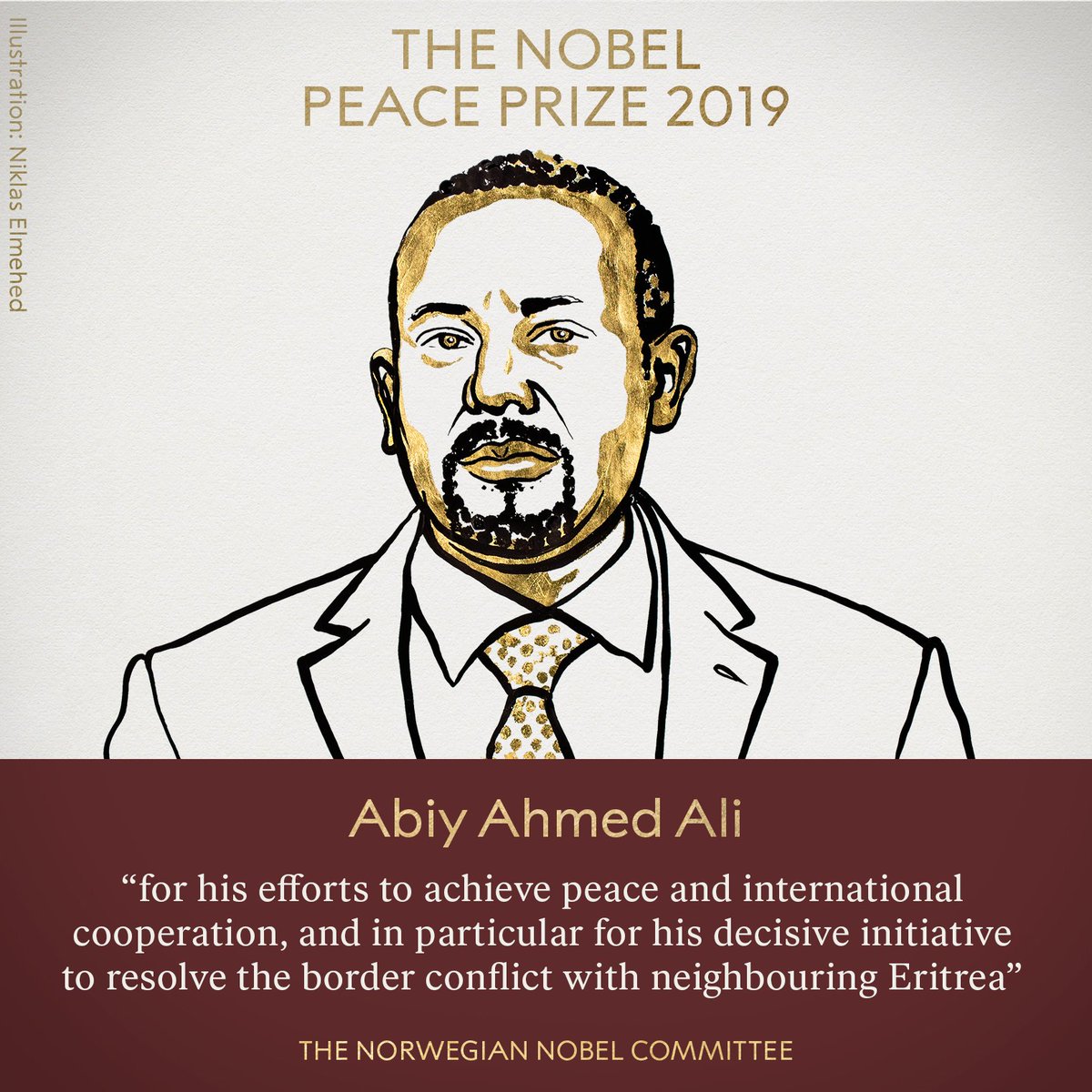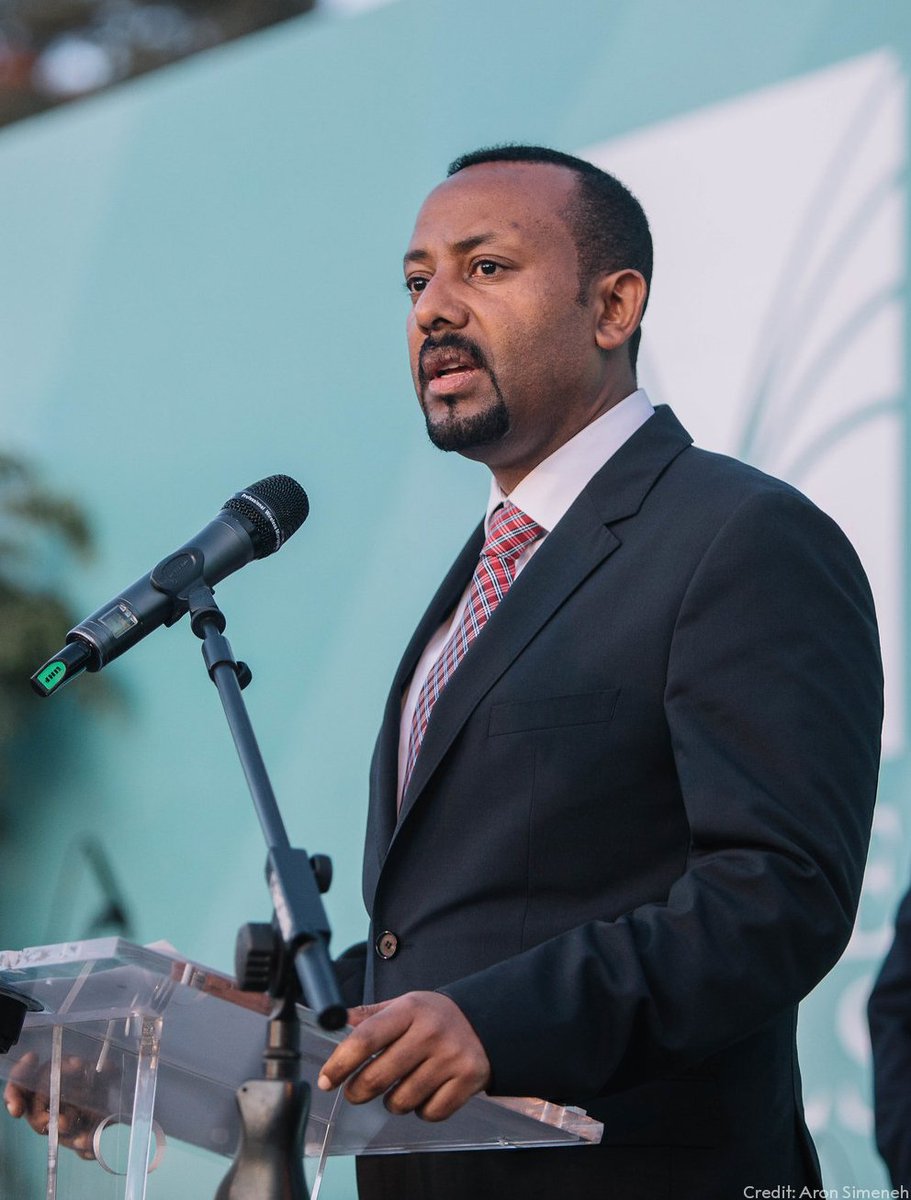BREAKING NEWS:
The 2019 Sveriges Riksbank Prize in Economic Sciences in Memory of Alfred Nobel has been awarded to Abhijit Banerjee, Esther Duflo and Michael Kremer “for their experimental approach to alleviating global poverty.”
#NobelPrize
The 2019 Sveriges Riksbank Prize in Economic Sciences in Memory of Alfred Nobel has been awarded to Abhijit Banerjee, Esther Duflo and Michael Kremer “for their experimental approach to alleviating global poverty.”
#NobelPrize

The research conducted by the 2019 Economic Sciences Laureates has considerably improved our ability to fight global poverty. In just two decades, their new experiment-based approach has transformed development economics, which is now a flourishing field of research.
#NobelPrize
#NobelPrize

Over 700 million people still subsist on extremely low incomes. Every year, five million children still die before their fifth birthday, often from diseases that could be prevented or cured with relatively cheap and simple treatments.
#NobelPrize
#NobelPrize
This year’s Laureates have introduced a new approach to obtaining reliable answers about the best ways to fight global poverty. It divides this issue into smaller, more manageable questions – for example, the most effective interventions for improving child health.
#NobelPrize
#NobelPrize

In the mid-1990s, Economic Sciences Laureate Michael Kremer and his colleagues demonstrated how powerful an experiment-based approach can be, using field experiments to test a range of interventions that could improve school results in western Kenya.
#NobelPrize
#NobelPrize
2019 Economic Sciences Laureates Abhijit Banerjee and Esther Duflo, often with Michael Kremer, soon performed similar studies of other issues and in other countries, including India. Their experimental research methods now entirely dominate development economics.
#NobelPrize
#NobelPrize
The 2019 Economic Sciences Laureates’ research findings have dramatically improved our ability to fight poverty in practice. As a result of one of their studies, more than 5 million Indian children have benefitted from programmes of remedial tutoring in schools.
#NobelPrize
#NobelPrize
Learn more about the 2019 Prize in Economic Sciences
Press release: nobelprize.org/prizes/economi…
Popular information: nobelprize.org/prizes/economi…
Advanced information: nobelprize.org/prizes/economi…
#NobelPrize
Press release: nobelprize.org/prizes/economi…
Popular information: nobelprize.org/prizes/economi…
Advanced information: nobelprize.org/prizes/economi…
#NobelPrize

In the 2019 Laureates’ early field experiments, more textbooks and free school meals had small effects, while targeted help for weak students significantly improved educational outcomes. This showed that help targeting the weakest pupils was an effective measure.
#NobelPrize
#NobelPrize

• • •
Missing some Tweet in this thread? You can try to
force a refresh










